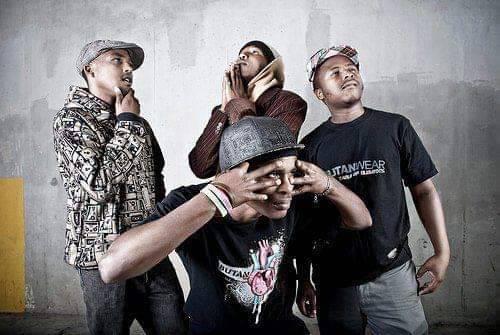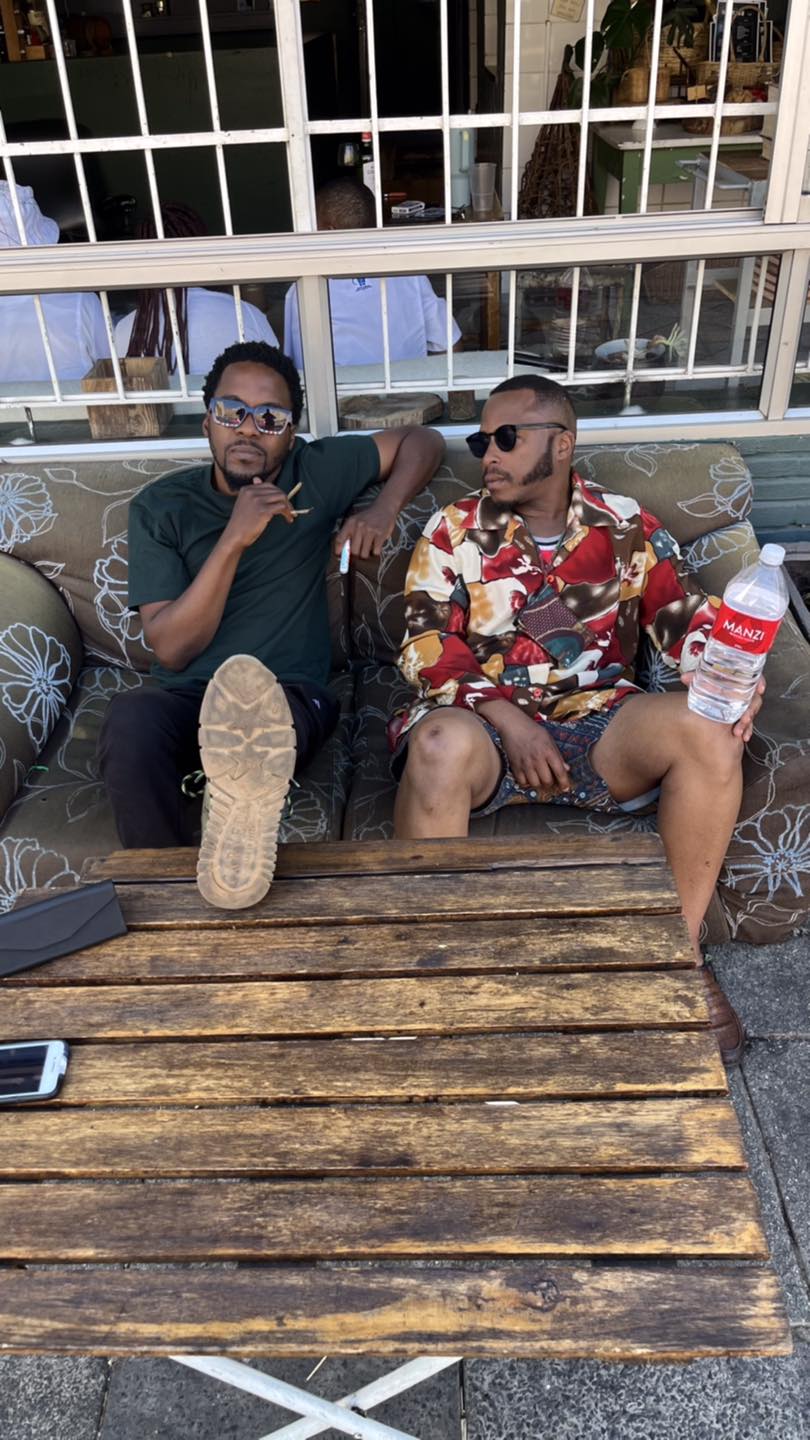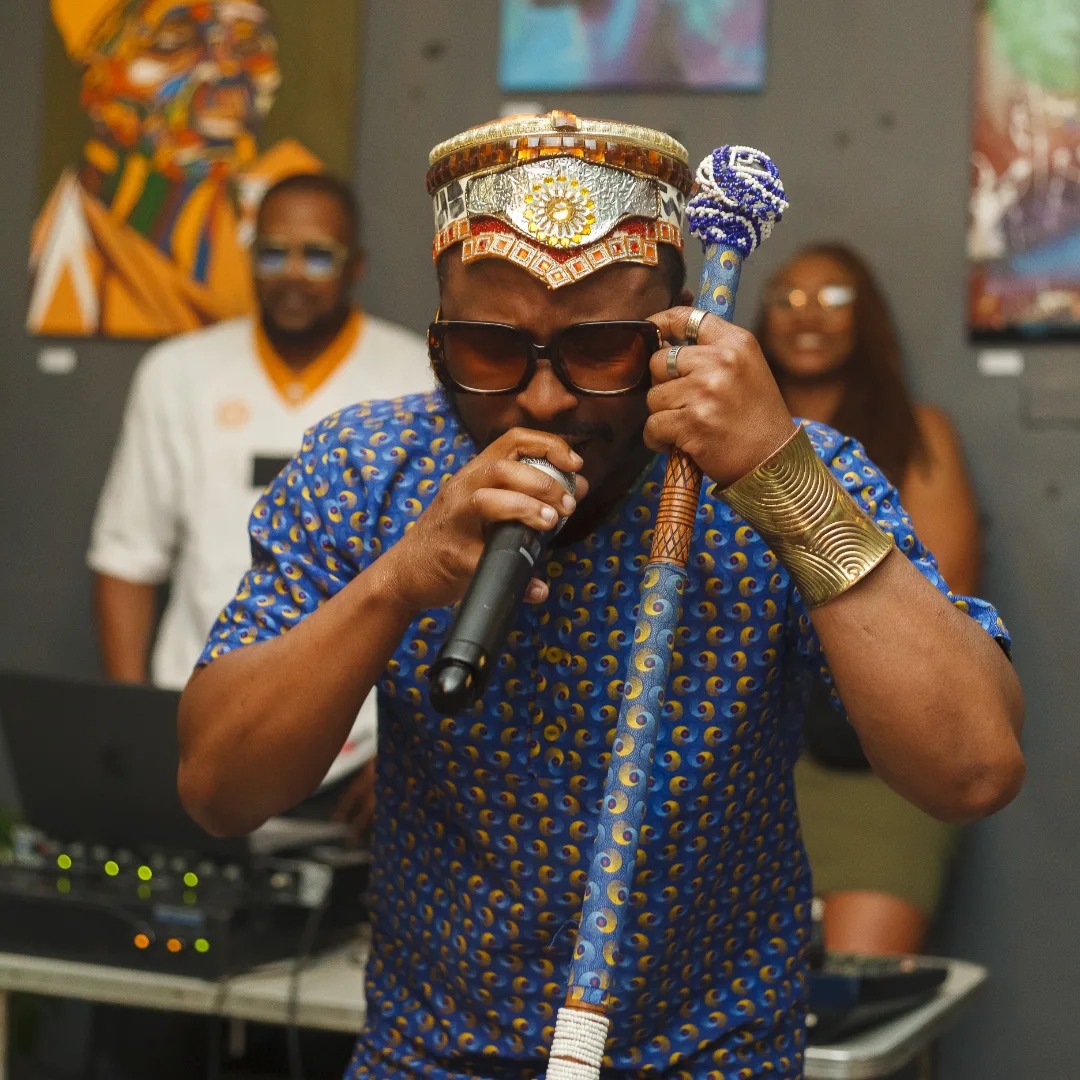A short history bite on EL Nino
asavela
6 May 2025
The conscious rapper El Nino’s name is carved into the foundation of Xhosa hip hop. As a founding member of Driemanskap, his sharp lyricism and unapologetic pride in township culture made him a standout voice from Cape Town to the national stage. But behind the accolades and influence lies a story of evolution, conflict, and staying true to self. From quietly parting ways with his iconic group in 2022 to launching platforms like Konscious Sundays, and even trading lyrical blows with iFani, El Nino has never stopped challenging the system—or his peers. Love him or hate him, he’s a storm that keeps moving.
El Nino of Driemanskap's Legacy, Loyalty, and Lyrical Wars
The name El Nino is etched into the DNA of Xhosa hip hop. As part of the legendary Cape Town rap crew Driemanskap, El Nino has been a voice of the kasi, a lyrical prodigy, and a courageous cultural critic for years. But recently, his name has been mired in headlines, scandals, and celebrity spats — particularly with other artists and erstwhile friends. Here's a detailed overview of his life, his legacy in South African hip hop, and the theatrics that have followed him.
El Nino is a Voice That Won’t Be Silenced
El Nino’s name is carved into the foundation of Xhosa hip hop. As a founding member of Driemanskap, his sharp lyricism, social commentary, and unapologetic pride in township culture made him a standout voice from Cape Town to the national stage. Driemanskap itself was born from a spark of inspiration during the Cape Town Fire on the Mountain festivals—an energy that pushed young creatives like El Nino to channel their voices through rap.
A conscious rapper to his core, El Nino has always merged message with rhythm. Long before the mic, he was an A student who excelled in Bible studies and earned a scholarship to study in Germany—an opportunity lost to the difficult realities of the 90s. That moment, like many in his journey, shaped the artist he is today: rooted in intellect, faith, and a relentless drive to speak truth. Love him or hate him, El Nino is a storm that keeps moving.
Driemanskap Origins

Driemanskap was founded in 2001 by three talented Xhosa rappers: El Nino, Ma B, and Ayanda Ntunjana. The three produced a powerful presence in the Cape Town hip hop scene, identified by their fiery lyrics, cultural identity, and deep township heritage.
In 2002, Ayanda Ntunjana left to pursue a career in the kasi business economy. He was substituted by Redondo in 2003, who brought a new flavor to the group. Subsequently, in 2005, Dlambulo (also known as Dla) joined, forming what would be the classic Driemanskap lineup that fans would become familiar with.
Driemanskap gained fame for rhyming unapologetically in isiXhosa, offering a uniquely South African hip hop experience that stuck to its roots while exploring musical boundaries.
El Nino's Departure from Driemanskap
Following over two decades of being the group's representative, El Nino officially left Driemanskap on July 20, 2022. His departure was not publicly announced at first, leading to confusion and speculation among fans. In 2023, an online video appeared with the other members suggesting El Nino had left, which only then confirmed what many had been suspecting.
In an interview with Xhosa Hip Hop, El Nino made it clear that he never left Driemanskap, calling the members his brothers and stating they would never do him wrong. He said he was shocked and hurt by the video suggesting his departure, bluntly calling it “shit.” According to El Nino, the group had all moved to Johannesburg in pursuit of better opportunities after being signed by CIA Music. However, when things didn’t work out with the label, the other members chose to return to Cape Town. El Nino refused to leave Johannesburg, deciding to stay and continue pushing on his own. That, he explained, is how the crew eventually drifted apart — not because of any fallout, but due to circumstances and decisions made in a tough season.
Konscious Sundays & New Directions
Following his departure, El Nino remained active in the hip hop scene. He began Konscious Sundays, a monthly show in Johannesburg to expose Xhosa hip hop artists and reinforce cultural pride within the culture. However, in 2024, the show was unceremoniously shut down following a social media altercation between El Nino and up-and-coming rapper Azi Dladla (at the time), which caused a lot of buzz online.
The Lidlozi War, El Nino vs. iFani

In 2024, El Nino dropped a song titled "Lidlozi" featuring Eastern Cape rapper iFani, but what started as a joint musical project turned into a public feud.
In an open interview on Cadenza's Quali Image Films Podcast, iFani alleged that El Nino's performance on the track was poor and that he had to train him into improving it. He even referred to El Nino as mean-spirited and vulgar, quoting him as saying:
"Voetsek msunu undiqhela ikaka!"
El Nino then disputed this accusation in an interview with Xhosa Hip Hop, claiming iFani had mismanaged the song's revenue and failed to honor agreements. As iFani describes, the song generated R1,200 in revenue from radio airplay funds from Umhlobo Wenene FM, the only assistance it ever got from them and MTV Base.
As the row escalated, iFani offered to buy El Nino's publishing rights for R20,000, with him owning the song outright. El Nino declined, insisting on R40,000, citing exploitation concerns. The matter later spilled onto social media, where iFani accused El Nino of not understanding the music industry, arguing that as a feature, El Nino was still owed royalties, sync deals, and performance rights.
Diss Tracks & Cyber Warfare
The feud escalated in typical hip hop fashion — through music.
- On Nov 28, 2024, El Nino released the diss song "Men's Conference", earning over 108,340 views on YouTube.
- iFani responded with "Two Feet", which was released on Jan 24, 2025 and constituted his first full English-language rap song, earning 124,319 views.
- El Nino retorted with "Men's Conference 2.0" on March 3, 2025, a sequel diss track, which was viewed 27,589 times.
The lyrical battle rekindled the limelight in both artists' careers and created buzz throughout the entire local hip hop scene.
Legacy of El Nino

In spite of all the controversies, El Nino's legacy is rooted strongly in his efforts in Xhosa hip hop. From his trailblazing work with Driemanskap to his enabling people to build their communities through Konscious Sundays, El Nino has remained steadfast in upholding his artistic and cultural ideals.
His recent controversies also highlight the complex realities of the music industry in South Africa — specifically around artist rights, publishing, and creative rights. Despite the theatrics, El Nino keeps demonstrating that he's not just a rapper — he's a fighter, a cultural warrior, and a voice who won't be silenced.
A Storm That Keeps Moving
Regardless of whether you're standing in El Nino's corner or iFani's, there's one thing that's for sure — El Nino's not done yet. As South African hip hop gets bigger and better, his voice — tough, explosive, and unapologetically Xhosa — is still one of the loudest and most vocal in the game.
Post Statistics
Views
43
Shares
1
Related Articles
Xhosa Hip Hop: How isiXhosa Rhymes Are Shaping South Africa’s Rap Future.
Xhosa hip hop is taking SA rap global — and artists like Static Flo are leading the charge.
Read More*Lyricist of the Year
Breakdown: True lyricism separates the real from the rest - complex rhyme schemes, depth, and raw storytelling. Shaamteloos stands out as the best lyricist in the bay, delivering intricate bars that challenge simple minds and reward true Hip-Hop listeners. His skill is unmatched and his pen sharp. - Prediction: Shaamteloos - for complex wordplay and authentic Hip-Hop mastery.
Read More